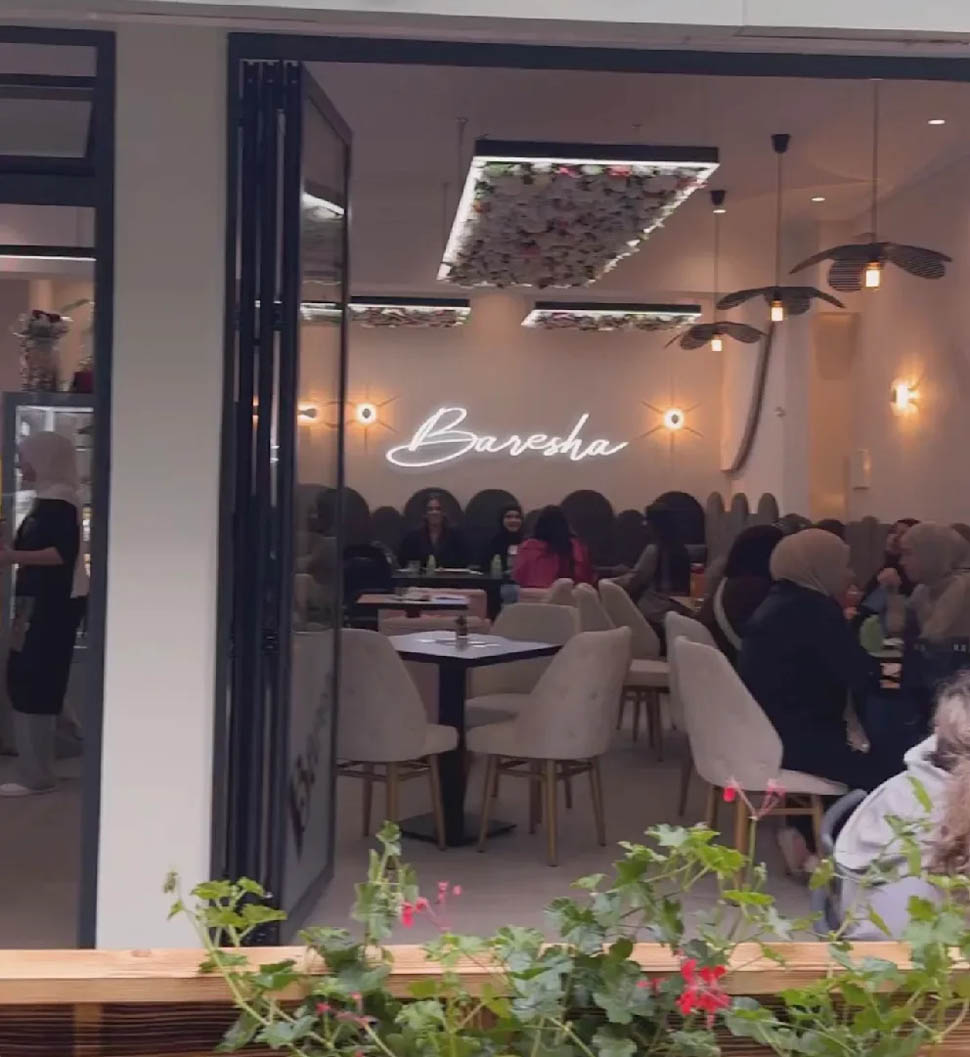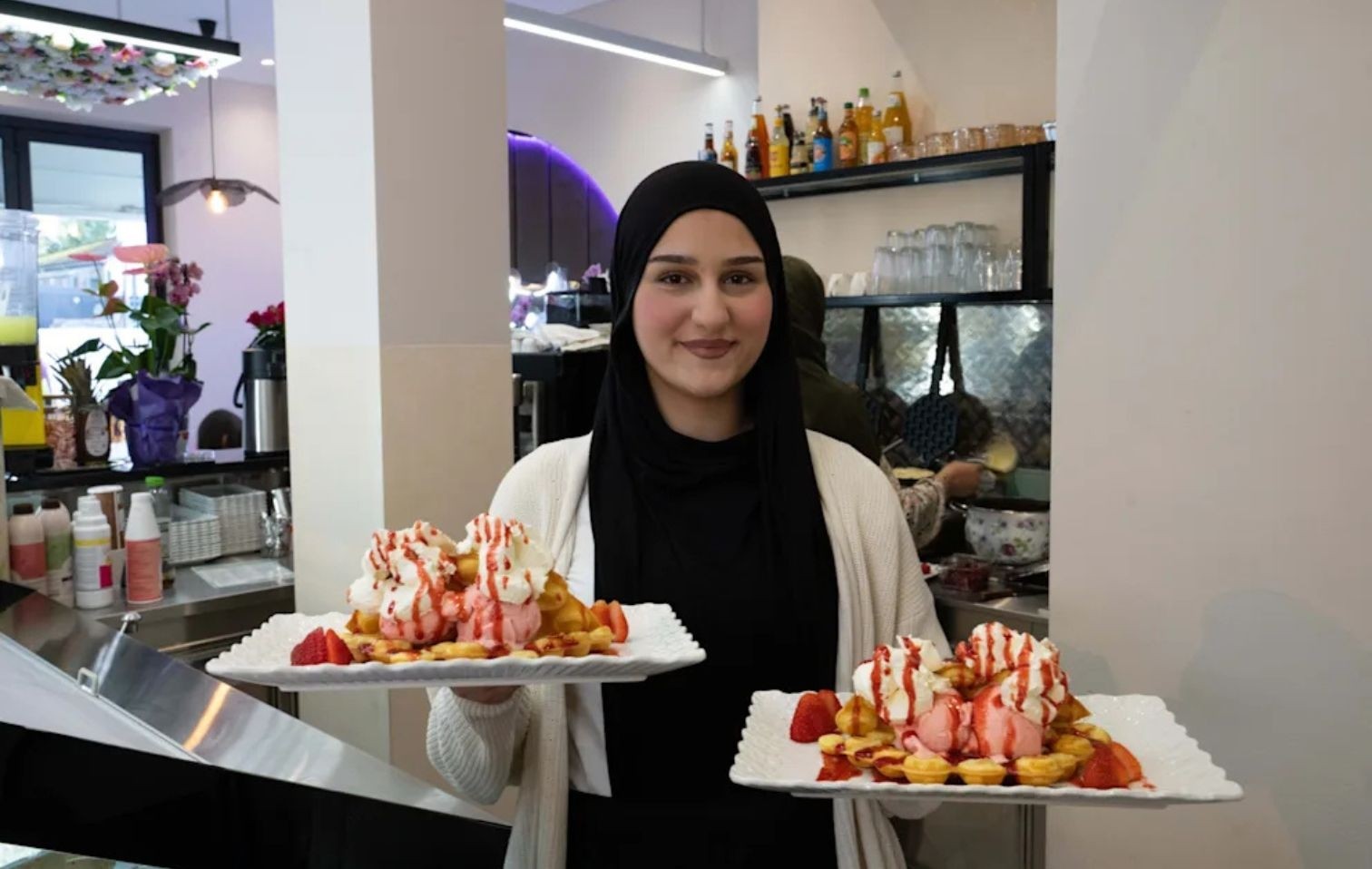In Bremen, a young entrepreneur decided to break the mold by opening a café exclusively for women. Sumeja Zumberi, just 18 years old, realized her dream in September, creating a place that offers coffee, ice cream, and desserts, all designed for a female audience. Her restaurant, Baresha, has already attracted attention and controversy, marking a significant debut in the German food scene. Here, the idea of a safe haven for women translates into a café where men are not welcome.
Cover photo: @Alicia Windzio, DPA
A refuge for women in a male-dominated culture
In the Gröpelingen neighborhood, where Sumeja opened its café, women often feel uncomfortable in cafés crowded with men. Zumberi's idea was to create a space where women can relax without feeling observed or judged. “There are many coffee shops where men congregate, but these are not always welcoming to women,” she explains to Rollin Pin. With its ice cream café, Sumeja aims to provide a comfortable environment where every woman can feel free to be herself.
Kosovo tradition and the concept of Women's Space.
Although the idea of a women-only café may seem unusual in Germany, it is an established practice in Kosovo, Zumberi's home country, where similar restaurants already exist. “In Kosovo, this is nothing new,” says the young entrepreneur. Here, many cafes are exclusively for women, creating spaces for women to socialize and support each other. The Baresha café is, therefore, a continuation of this tradition, adapted to the German context.


Criticism and controversy: a disputed concept
Despite Sumeja's positive intent, the opening of Baresha drew mixed reactions. Many men have criticized the café, seeing it as discriminatory and unfair. Feminist Seyran Ateş also expressed concerns about the symbolic issue such a restaurant could pose. “Women are not confronting patriarchy, but isolating themselves,” she said in an interview, raising questions about what gender equality really means.
Concern about a divided society
The criticism does not stop there. Some experts warn that the creation of women-only spaces could lead to the formation of a parallel society in which gender separation becomes the norm. Others, however, see the situation more pragmatically, arguing that Baresha finally offers a gathering place for women, particularly Muslims, where they can feel safe and comfortable.

Most reactions are positive
Despite the criticism, Sumeja points out that most of the reactions have been positive. “About 90 percent of the comments are favorable,” says. Women, in particular, have enthusiastically welcomed the initiative, happy to have a dedicated space where they can share moments of conviviality. “Women write me that they feel at home here,” Zumberi concludes, reassuring those who see her café as a step backward in the fight for equality.
A future for Baresha: space for conviviality
Sumeja Zumberi looks to the future with optimism. Her café could be not only a meeting place, but also a symbol of women's empowerment. By creating an environment where women can express themselves freely, Baresha has the potential to become a model for other cities to follow. “Equality is also achieved by creating safe spaces for ourselves,” concludes the young entrepreneur, echoing a message of female inclusion and solidarity.












